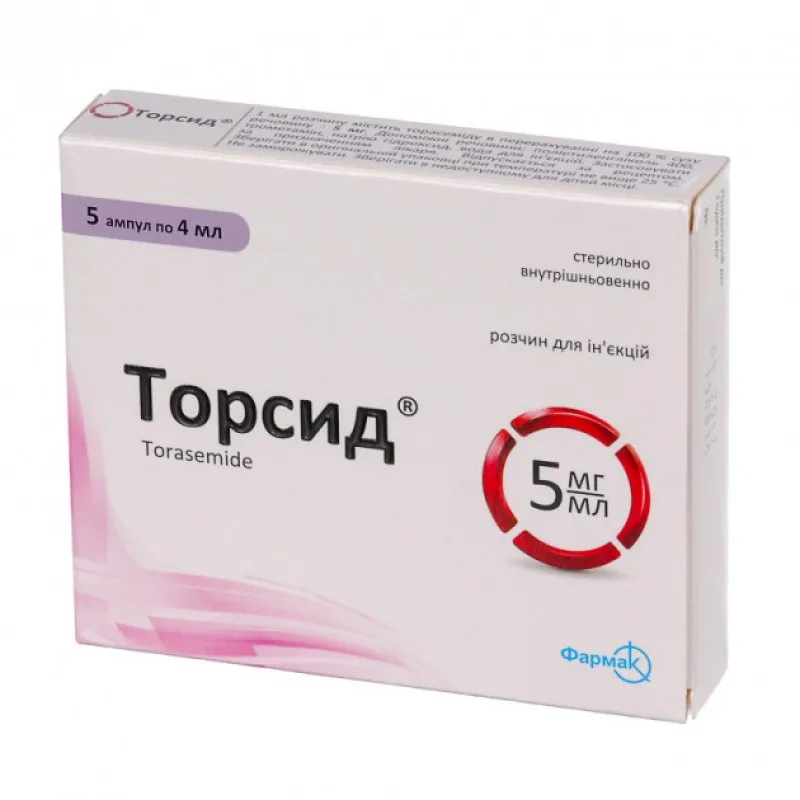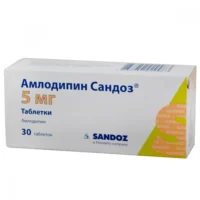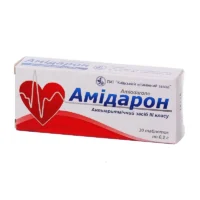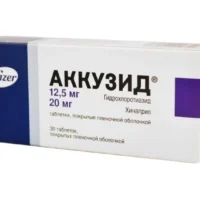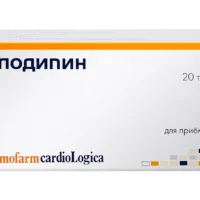Description
Torsid (Torasemide) Solution for Injections Ampoules 5 mg/ml, 4 ml, №5
Ingredients:
- Each ampoule contains 5 mg of torasemide as the active ingredient.
- Other ingredients include sterile water for injections.
Dosage:
The usual adult dose is 5 mg to 10 mg once daily, administered by intravenous or intramuscular injection. Dosage may vary based on individual patient needs and response to treatment.
Indications:
- Torsid is indicated for the treatment of edema associated with congestive heart failure, renal disease, or hepatic disease.
- It is also used to manage hypertension.
Contraindications:
- Do not use Torsid in patients with anuria, hepatic coma, or hypersensitivity to torasemide or sulfonamides.
- Use with caution in patients with renal impairment.
Directions:
Administer Torsid as directed by a healthcare provider. Follow proper aseptic techniques during administration to minimize the risk of infection.
Scientific Evidence:
Studies have shown that torasemide, the active ingredient in Torsid, is effective in reducing edema and managing hypertension. Research published in the Journal of Clinical Pharmacology demonstrated the superior diuretic efficacy of torasemide compared to furosemide in patients with congestive heart failure.
Additional Information:
- Torsid is well-tolerated in most patients but may cause electrolyte imbalances and hypotension.
- Regular monitoring of electrolyte levels and blood pressure is recommended during treatment.
Pharmacological Effects: Torasemide is a loop diuretic that acts on the kidneys to increase the excretion of water and electrolytes. It inhibits the reabsorption of sodium and chloride in the ascending loop of Henle, leading to diuresis and reduced fluid retention.
Clinical Trials: Clinical trials have demonstrated the efficacy of torasemide in various conditions, including heart failure and hypertension. A study published in the European Heart Journal showed that torasemide improved symptoms and reduced hospitalizations in patients with heart failure compared to placebo.

